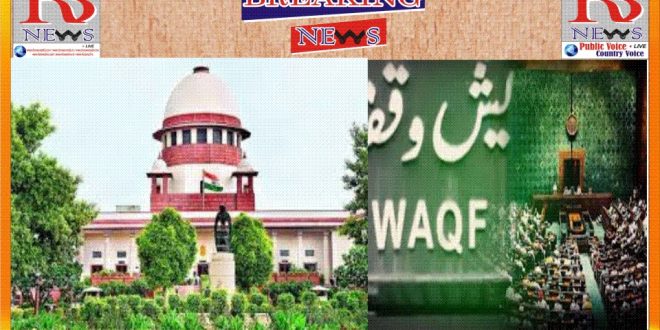Supreme Court Hearing on New Waqf Act: Amidst the protests and support across the country regarding the Waqf Amendment Act, this case is being heard for the first time in the Supreme Court today i.e. Wednesday (16 April). At 2 pm, a bench of Chief Justice Sanjeev Khanna, Justice Sanjay Kumar and Justice K.V. Vishwanathan will hear the case. A total of 72 petitions have been listed for hearing in the Supreme Court regarding the Waqf Amendment Act.
The petitioners have said that the new Waqf Act is against fundamental rights like Articles 14, 15 (equality), 25 (religious freedom) 26 (arrangement of religious matters) and 29 (minority rights) of the Constitution. The petitioners have also said that the change in the law is against Article 300A i.e. the right to property.
Some important petitions filed for hearing in the Supreme Court regarding the Waqf law
AIMIM leader Asaduddin Owaisi
AAP MLA Amanatullah Khan
Maulana Arshad Madni (Jamiat Ulema chief)
SP MP Ziaur Rahman Barq
TMC MP Mahua Moitra
Congress MP Mohammad Javed
All Kerala Jamiatul Ulema
RJD MP Manoj Jha
Indian Union Muslim League
JDU leader Parvez Siddiqui
Syed Kalbe Jawad Naqvi
Apart from these, other leaders of political parties like Congress, TMC, DMK, CPI have also filed petitions. All India Muslim Personal Law Board has also filed a petition in this matter. It has been mainly said in all the petitions that this is a law that discriminates against Muslims. Waqf is a religious institution. Government interference in its functioning is wrong.
Applications were also filed in the court in support of the new Waqf law
Many applications have also been filed in the court in support of the Waqf Amendment Act. 7 states of India – Madhya Pradesh, Rajasthan, Haryana, Maharashtra, Uttarakhand, Assam and Chhattisgarh, have described the Waqf Amendment Act, 2025 as practical, transparent and equitable.
Apart from this, some tribal organizations have expressed support, calling it a law protecting their community. They have said that due to the old law, the Waqf Board was also occupying the land of the Scheduled Tribe people. However, now this will not be possible.
The Central Government filed a caveat so that the court does not give a unilateral order
The Central Government has filed a caveat in the Supreme Court. The Center has demanded to hear its side before any order. Since the petitions opposing the Waqf Amendment Act have also demanded a ban on the law. In such a situation, the government has tried to ensure that the court does not give any unilateral order without hearing its side.
 RB News World Latest News
RB News World Latest News






